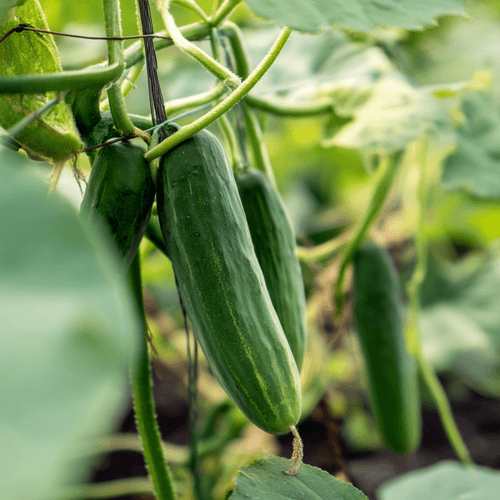Did you know ?
- 1 Cucumbers are over 95% water, making them incredibly hydrating.
- 2 Applying cucumber slices to the eyes can help reduce puffiness.
- 3 Some varieties of cucumbers can grow to be over two feet long!

The cucumber is a refreshing, hydrating member of the gourd family. Though botanically a fruit, it’s often used culinarily as a vegetable. Known for its mild flavor and high water content, it’s a versatile addition to salads, snacks, and drinks.
Did you know ?
View other Fruit vegetables
Nutrition
| Calories | 45 kcal |
| Proteins | 2g |
| Carbohydrates | 11g |
| of which sugars | 5g |
| Fiber | 2g |
| Fats | 0g |
Ripeness
Selection
Storage and ripening
Cucumbers don't typically 'ripen' after harvest, but here's how to prevent spoilage :
Health
Origin
Cucumbers originated in India and have been cultivated for over 3,000 years. From there, they spread to Greece and Rome and, later, to the Americas with European colonization. Today, cucumbers are enjoyed worldwide.
Recipes
Gallery
There is no images yet. Submit one now to contribute to the gallery !
F.A.Q
Warnings
Has a similar shape and texture, but zucchini is typically darker green and has a different flavor profile.
Are cucumbers that have been preserved in brine or vinegar.